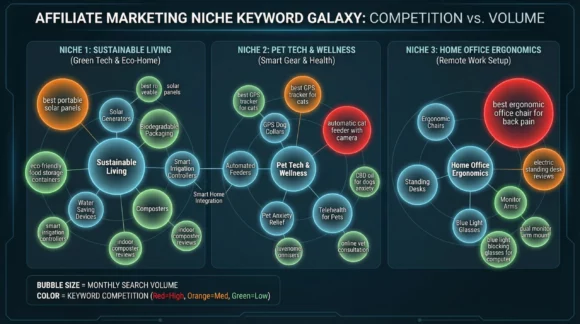Hey, who doesn’t dream of hitting the jackpot someday? It’s a fantasy that many of us entertain. The lure of the lottery isn’t just about the money; it’s about the dream that, in an instant, all our finanical worries could vanish. The idea of immediate relief from financial stresses is incredibly appealing, especially when planning for retirement seems overwhelming.
Lotteries often promise escape from the grind. I get it—planning for decades can be stressful and sometimes downright depressing compared to the thrill of suddenly never having to worry again. This mix of short-term excitement versus long-term planning can make gambling on the lottery seem tempting to many.
And let’s be real about financial desperation. When you’re in a tough spot, the lottery feels like a lifeline. There’s this hope that with just one lucky draw, everything could change. But are we letting desperation guide decisions that need careful thought and planning? That’s something to consider.
The issue with relying on a lottery for retirement isn’t just about financial inputs and outputs. It’s about managing expectations and understanding what retirement should ideally look like—a well-thought-out financial plan rather than a bet on an unpredictable ticket. Mapping out a realistic path can change the game entirely.
The Odds: Understanding Lottery Probability
Everyone knows the odds of hitting it big are slim, but just how slim are we talking? It’s actually kind of wild if you think about it. Most lotteries have odds as steep as winning a jackpot is on the order of 1 in 175 million, if not worse. Imagine trying to find a specific grain of sand on a vast beach. That’s pretty close to your chances.
It’s worth it to pause and wrap your head around this. We hear stories of people winning all the time, which makes it feel more possible than it is. But the truth is, you’re more likely to be struck by lightning or to find a four-leaf clover than to pick the winning numbers. I know it sounds harsh, but understanding these odds can save us from a real wake-up call later.
Let’s put those odds to work instead for you, not against you. By understanding them, we can steer our efforts toward more reliable financial planning.
If you’re considering buying a lottery ticket, think about how much you’re spending over time. Could that money be better spent in a savings account or an investment that compounds interest? Making informed decisions today might mean a much more comfortable tomorrow.
It’s not about squashing dreams here; it’s about putting those dreams in context and giving them a practical road to come true. Betting on incredibly low odds can feel tempting, but with some smart moves, we can aim for success within reach.
Stories of Winners: The Reality Behind the Headlines
Winning the lottery sounds like the ultimate fairy tale. You see it on the news, happy faces holding big checks, and you think, “It could be me, right?” But there’s a lot going on behind the scenes that these headlines don’t show.
Let’s dig into a few stories. Take the tale of a big winner who quickly found themselves in financial messes. It’s surprisingly common. Many winners face unexpected pitfalls once the dust settles. Suddenly having wealth, with no long-term plan, can lead to serious trouble. Think of it like trying to manage an unruly zoo with no keeper.
That’s why it’s vital to have a smart game plan even if luck does come knocking. Financial advisors often say if winners handled their sudden wealth right, they could live comfortably for life. But reality shows us this isn’t always the path taken.
You’ve often heard that a windfall needs wise management. Those who understand the discipline of investing, saving, and budgeting find a way to use their winnings prudently. They diversify between spending, saving for future needs, and maybe even giving back to the community.
Having a structured financial plan can make all the difference. Even better is having a plan before any jackpot arrives. Creating a financial future we nurture continually will serve us much better than hoping for a win.
These stories are reminders. The lottery may drop money in your lap, but it’s up to you to make it work. Use these tales of winners as lessons—learn from their experiences and apply what works to your journey, expecting that the true victory is in solid planning.
Effective Retirement Planning: Strategies for a Secure Future
Solid retirement planning takes center stage when you’re looking beyond the allure of a lottery win. Building a reliable retirement portfolio requires time, strategy, and yes, a bit of patience. It’s the slow, steady marathon approach, not the sprint for a quick payday.
Start by setting clear, realistic finances goals tailored to your lifestyle. What does retirement look like for you? It’s a question only you can answer, and any plan needs to fit your vision, not some cookie-cutter plan.
Understanding the magic of compounding interest is essential. Putting your money into investments that grow over time is one of the most effective ways to build wealth. Think of your investments as little financial workers, slowly but steadily building you financial security.
A diversified investment portfolio can also help. Instead of putting all your eggs in one basket, spread them around. Different types of investments like stocks, bonds, real estate, or mutual funds can offer both growth and security, balancing out risk more effectively.
Don’t underestimate the power of regular contributions. Even small, consistent investments can add up significantly over time. Making these contributions part of your regular budget keeps you on track, allowing you to take advantage of market growth.
Meeting with a reliable financial advisor can provide valuable insight. These experts can give your plan the fine-tuning it needs, offering tailored strategies aligned with your risk tolerance, investment horizon, and retirement goals.
A well-thought-out plan filled with actionable strategies puts success within reach. It’s like crafting a recipe for a grand banquet of financial freedom—small thoughtful steps add up to something massive down the line.
Alternatives to Lottery: Smart Financial Habits for the Long Term
When it comes to building wealth and ensuring a comfortable retirement, there are alternatives to playing the odds with lotteries. Building smart financial habits can turn your dreams of a secure future into reality.
First up is the importance of having a rainy day fund. Life is unpredictable, and having a safety net ensures you’re not thrown off course by sudden expenses. Whether it’s medical bills or car repairs, a little extra cushion allows you to handle emergencies without dipping into your long-term savings. Think of it like your financial stress-relief button.
Investing consistently is another game-changer. No need for flashy stock tips, just a solid plan of regular investments in a balanced portfolio. This means putting money into various long-term growth opportunities, like index funds or retirement accounts, and letting time work its magic.
Exploring real estate possibilities can also be a valuable move. Whether it’s buying a home to build equity or investing in rental properties, real estate offers a tangible way to grow your wealth. Even minor investments can offer a good return when managed well.
Let’s not overlook side hustles. Joint ventures or starting a small business can not only generate income but also open doors for future opportunities. It’s all about leveraging your skills and interests into something profitable.
Finally, living within your means and budgeting smartly sounds awfully basic, but it’s the secret sauce of financial independence. Track your spending and savings goals so you’re always making informed financial decisions.
These alternatives to scratching off dusty tickets put you in control. Smart financial habits build a foundation that doesn’t rely on chance alone but is constructed piece by piece.
Fostering a Healthy Financial Mindset for Retirement Security
Money might not buy happiness outright, but managing it smartly sure helps keep worries at bay. Cultivating a healthy financial mindset starts with recognizing how emotions play into our financial behaviors.
Sometimes, we unknowingly cling to myths or biases, like thinking we have to hit it big or it’s game over. Breaking free from these patterns requires self-awareness and a willingness to shift perspectives.
Adopt a mindset that values long-term goals over short-term wins. This is where financial mindfulness comes in—an approach to money that emphasizes informed, deliberate decision-making. It’s not just about banking cash; it’s about making every penny work harder and smarter for you.
You can also try engaging in financial education. Whether through reading, attending seminars, or even online courses, stay informed about personal finance. This knowledge arms you with the best practices for saving, investing, and spending wisely.
Surround yourself with a community or even mentors who value financial wellness. Sharing experiences, tips, and strategies builds a support system that encourages better money habits and mutual learning.
Lastly, think of your financial journey as a marathon, not a sprint. Celebrate the small victories along the way because they add up to something great. A healthy relationship with money doesn’t remove challenges, but it prepares you to deal with them gracefully.








I acknowledges the very real allure of the lottery dream especially during times of financial stress while gently guiding readers toward a healthier, more secure approach to retirement planning. I really appreciated how it balanced facts (like the astronomical odds) with actionable strategies anyone can start using now. From investing consistently to building emergency funds and exploring alternative income sources, the article offers solid, practical steps that feel empowering rather than overwhelming. The reminder that true financial freedom comes from discipline and long-term vision not luck is both wise and motivating. It’s not about crushing dreams, but about turning them into goals with real paths to success.
Thank you so much for your thoughtful comment! I’m really glad the message came through in the way it was intended—not to dismiss the dream, but to offer a more grounded and empowering path toward real financial security. It’s true, the lottery can feel like a tempting escape during tough times, but building consistent habits like saving, investing, and planning for the long term can create freedom that lasts. I love how you phrased it: turning dreams into goals with real paths to success—that’s exactly the heart of it. Appreciate you sharing your insights!
Absolutely loved this post—it’s a much-needed reality check! The comparison between spending $5 a week on lottery tickets versus investing that same amount into a retirement account really puts things into perspective. It’s eye-opening to see how small, consistent contributions can grow significantly over time. The statistics about lottery spending habits were particularly striking. It’s a reminder that while dreaming is fun, practical planning is essential. Given these insights, what are some beginner-friendly investment options you’d recommend for someone just starting to think seriously about retirement savings?
Thank you so much—I’m really glad the post resonated with you! You’re absolutely right—dreaming has its place, but pairing that with practical planning can truly change the game. That $5-a-week example often surprises people, but it’s a powerful illustration of how consistency, not just big moves, builds wealth over time.
As for beginner-friendly investment options for retirement, here are a few great places to start:
Employer-Sponsored Retirement Plans (like a 401(k))
If your employer offers one, especially with a match, it’s a no-brainer. Contribute at least enough to get the full match, because that’s essentially free money.
Roth IRA or Traditional IRA
Great for people starting out. A Roth IRA is especially good if you expect to be in a higher tax bracket later, since you contribute after-tax dollars but can withdraw tax-free in retirement.
Target-Date Retirement Funds
These are perfect for beginners—they automatically adjust your investment mix based on your expected retirement date. Just set it and forget it.
Low-Cost Index Funds or ETFs
If you want a bit more control but still keep things simple, these let you invest in a wide range of companies at once, keeping risk lower and fees minimal.
The key is to start—even with small amounts—and stay consistent. Over time, those small choices add up to big results.
Thanks again for your thoughtful comment and question! Let me know if you’d like help exploring any of these options further.